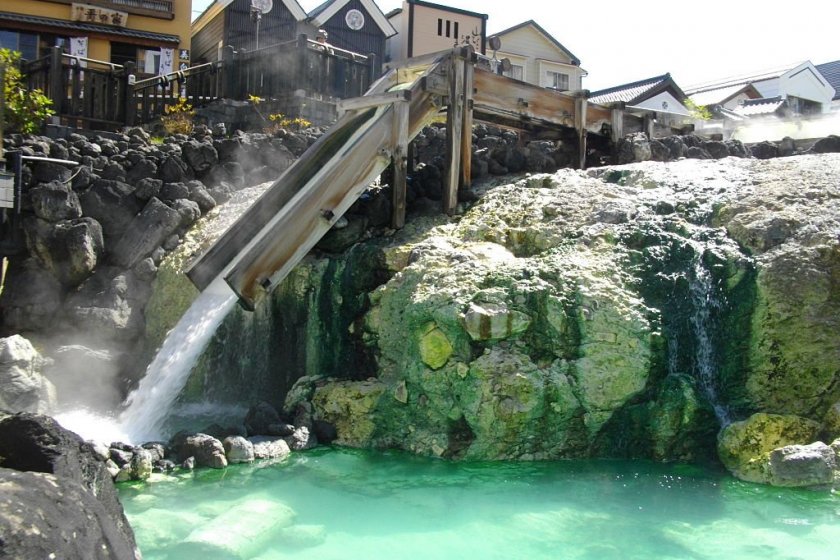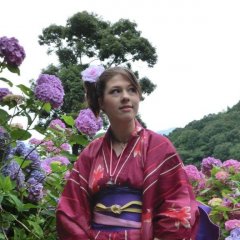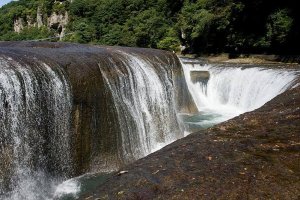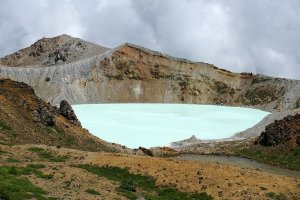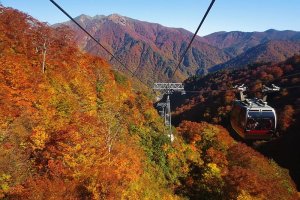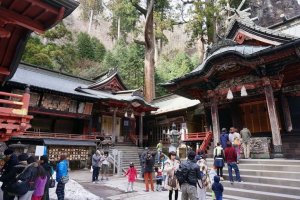Gunma Prefecture, in eastern central Japan, might not make it on many a Japan bucket list—but there are plenty of reasons it should be. From outdoor activities and a unique history of horse breeding to natural wonders, Gunma has it all. History- and outdoor lovers alike can find something in this prefecture just a few hours north of Tokyo.
Here are ten hot spots just waiting for you to discover in Gunma:
Tomioka Silk Mill

Receiving a UNESCO World Heritage inscription in 2014, Tomioka Silk Mill is Japan’s oldest modern silk-reeling factory. It was established in 1872 by the Japanese government as a way to introduce French silk-reeling techniques and technology to Japan.
In the late 19th century, Japanese raw silk was the main economic export. But due to the demand for raw silk the quality soon began to falter, which would have greatly harmed the reputation of the raw silk industry in Japan; and so Tomioka Silk Mill was built with sophisticated machinery in hopes of improving the quality and quantity of raw silk.
Today, the mill remains in almost perfect condition and the lifestyles of the workers and French instructors are clearly recorded for guests to experience.
Yubatake and Kusatsu Onsen

Visit the waters of Kusatsu Onsen if something is ailing you—unless it’s a broken heart. But even then, you might find some measure of solace while looking at the hauntingly surreal Yubatake. Located in the center of the hot spring town, the Yubatake pumps out an amazing 32,300 liters of hot water every minute. After the water is cooled a few degrees, it’s carried off to various local hot springs.
Kusatsu Onsen is a beautiful and healing place to visit whether you’re alone, with friends, or family. Explore the many hot springs of the town and discover which waters suit you best. From milky to clear, sulfurous to acidic, these magical baths are sure to warm you and soothe away your troubles.
- Kusatsu, Kusatsu, Agatsuma District, Gunma 377-1711
- Open 24 hours (Open Now)
Oze National Park

Head to the great outdoors at Oze National Park. The park crosses four prefectures, however, the most stunning views are said to be in Gunma. This is one outdoor activity you won't want to miss. Visit between May and October when the flora is at its best and you’ll be treated to vistas of skunk cabbages and golden daylilies dotting the marshlands.
Oze National Park is truly a Japanese treasure. With the wooden plank-like walkways, it makes for an easy, flat hike around its 6-kilometer trail. It’s a popular spot for flora as well as fauna and bird watching is an especially beloved pastime here. A shuttle bus from Tokura offers the best starting point for any would-be hiker. Be sure to bring plenty of water and to keep the trails and park free of trash on your return trip.
Oze National Park is also on the doorstep of the Minakami region — known for its outdoor activities like canyoning, bungee jumping, and kayaking in the summer, or skiing and snowboarding in the winter.
Sainokawara Park

Get your fill of the four seasons in Sainokawara Park, near Kusatsu Onsen. Just a short walk from the center of the hot spring town, past the Yubatake, visitors will find themselves in a forest of hot springs. There, in the open, are statues and monuments to literary figures who once visited.
Feel the changing seasons surround you as you bathe in the open. For the more shy guests, the nearby Sainokawara Rotenburo is separated by genders—except on Fridays, when it becomes mixed bathing (bathing suits and towels are allowed).
Haruna Shrine

If you’re looking for a traditional experience, Takasaki City’s Haruna Shrine may be for you. This famous power spot draws many tourists every year for its mystical properties and long history. Founded in 586, Haruna Shrine, on top of Mount Haruna, shares a connection to the other shrines, both atop their own respective mountains.
This shrine is dedicated to the gods of water, fire, and agriculture and even blesses visitors with business prosperity, good marriage, and fortune in any examinations. Even if you aren’t after blessings, it’s a great place to soak up the vibes of the shrine and surrounding atmosphere.
On the far side of Mount Haruna's slopes, you can also discover Ikaho Onsen, a small hot spring town, famous for its hot spring waters rich in iron content (Kogane no Yu) and 365-step stone path that climbs through the town.
Fukiware Falls

The Gunma outdoors is certainly no stranger to beautiful vistas. Another great spot for the nature lover visiting is the Niagara of Japan, Fukiware Falls. This 7-meter high and 30-meter wide waterfall series has astounded people for ages. Banked on both sides by verdant forests, you can really appreciate the majesty and power of nature.
To get a sense of its size, be sure to cross the suspension bridge over the falls—if you’re brave enough. For those less sure of their feet, or perhaps afraid of heights, you can also enjoy the falls from a safe distance on the promenade. No matter where you view Fukiware Falls from, you’ll have some beautiful photos that last a lifetime. There are also smaller falls nearby that attract their fair share of visitors.
Onioshidashi Volcanic Park

Onioshidashi means “pushing the demon out” but don’t worry! The ogre that once ruled Mount Asama volcano and surrounding park is long gone . . . probably. This park covers almost 7 square kilometers and the landscape is speckled with black volcanic rocks from the last eruption in 1783. The result of that eruption makes for an unusual and alien world.
In fact, there are some plants and moss that can be found here and not many other places in the world. The aptly named goblin gold is one such moss species and flourished in spring and autumn. Be sure to try to find it, if you’re in the area. The landscape is also beautiful in winter when snow caps the black rocks of the park. If you love the outdoors, this park is a must-see.
- 1053 Kanbara, Tsumagoi, Agatsuma District, Gunma 377-1593
- 8:00 - 17:00 (Closed now)
Tanigawadake Ropeway

If you like heights, a visit to Tanigawadake Ropeway is a must-see for you. The top elevation reaches 1,319 meters and the trip crosses almost two and a half kilometers. The one-way ride takes fifteen minutes, which affords you plenty of time to carefully move about the ropeway cabin and take photographs of the surrounding landscape. The folds of the tree-blanketed mountains are especially stunning in autumn when the colors come alive with brilliant crimson and gold.
The ropeway stops at the peak of the mountain where visitors can stay at Tenjindaira Ski Resort. The mountain becomes a ski paradise in winter and from July to November the hiking season is in full swing. You’ll love the sense of thrill and wonder as you soar through the sky on this ropeway.
Takumi no Sato

Takumi no Sato is the perfect place to visit if you’re aching for a more hands-on experience of Japanese traditional crafts and arts. With over two dozen workshops to participate in, you can create—or just watch—as masters of the craft instruct you on how to make any number of handicrafts. Make washi paper, handmade soba, weave bamboo mats, or dye your own piece of indigo fabric. You’re certain to leave with a one-of-a-kind souvenir that you’ll treasure for years.
Mount Shirane

Mount Shirane—or Mount Kusatsu-Shirane—is an active volcano in Kusatsu. With eruptions as recent as 2018, this volcano is sometimes off-limits to the public for the danger it can present.
If you’re able to visit the mountain volcano, however, you’ll be amazed by the milky sapphire blue waters of Yu-gama, a volcanic and highly acidic lake at the summit of the volcano. There is even a hiking trail around Yu-gama which is sure to reward any brave hiker with amazing angles for stunning photographs.
